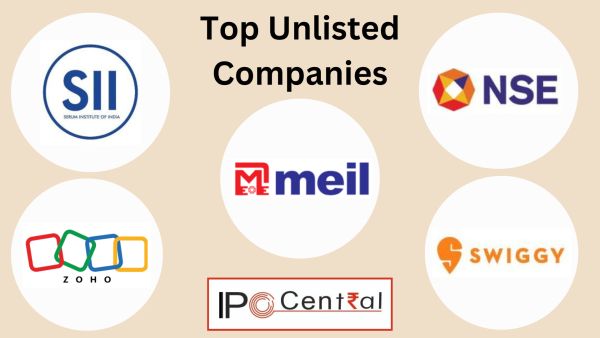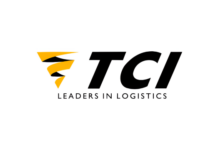Investors often focus on the primary and secondary markets, but there’s a lesser-known space called the pre-primary market – where unlisted companies operate. These are businesses that haven’t gone public yet but play a crucial role in the broader stock market ecosystem. Many companies eventually choose to go public to raise funds for growth or boost their visibility, although some remain privately held by choice. Some of these private firms grow into significant players, not just in India but globally. Depending on their size and stage of growth, unlisted companies can present exciting opportunities for investors. Let’s take a closer look at some of the biggest unlisted companies in India.

Read Also: Best IPOs in 2024
Table of Contents
#1 Serum Institute of India (SII) – Most Valuable Unlisted Company in India

The Serum Institute of India, led by Adar Poonawalla, is the world’s largest vaccine manufacturer and the most significant unlisted company in India. SII produces a wide range of vaccines, including those for Polio, Diphtheria, Tetanus, and COVID-19, and its vaccines are administered to approximately 65% of children globally.
In January 2024, SII joined the CEPI global network with a USD 30 million investment to enhance the production of affordable outbreak vaccines. This partnership supports the 100 Days Mission, aiming to develop new vaccines within three months of identifying a pandemic threat. SII has also showcased its efficiency by responding to the Sudan ebola virus outbreak in Uganda, delivering investigational vaccines within 80 days. Poonawalla has reaffirmed SII’s commitment to using its manufacturing capabilities for addressing other health threats like Lassa Fever and Nipah virus, ensuring equitable access to vaccines in the Global South. This summary captures the essential points while maintaining clarity and focus.
Value – INR 1,92,300 crore (down 12.5% y/y)*
Revenue – INR 10,190 crore
Net Income – INR 4,187 crore
ROE – 15.93%
Read Also: Best IPOs that Doubled Investors’ Money
#2 National Stock Exchange of India (NSE)

In recent times, the volumes of derivatives and stock trading have witnessed significant expansion, especially in the wake of the Covid-19 pandemic. This surge in trading activities has resulted in a substantial increase in revenues. The National Stock Exchange (NSE) business model is designed to offer revenue predictability and impressive return ratios. These factors contribute to NSE’s status as one of the biggest unlisted companies in India. In contrast, the Bombay Stock Exchange (BSE) is already a publicly listed entity. It is plausible that, given these dynamics, the NSE might also make its way out of the unlisted companies category in the coming years.
Value – INR 4,95,000 crore
Revenue – INR 16,434 crore
Net Income – INR 8,306 crore
ROE – 37%
Total Listed Companies on NSE in March 2024 – 2,379
#3 Megha Engineering and Infrastructure – Biggest Unlisted Companies in India

Incorporated in 1989, Megha Engineering & Infrastructures Limited (MEIL) is a prominent infrastructure company based in Hyderabad, India. Over the years, it has rapidly expanded into a global entity, executing numerous iconic projects that reflect contemporary trends and celebrate economic and cultural advancements. MEIL is dedicated to enhancing the quality of life for communities through significant infrastructure initiatives worldwide.
The company operates across various key sectors, including water management, engineering, construction, manufacturing, transportation, hydrocarbons, power, process industries, and defense. MEIL is committed to leveraging indigenous technological innovations for the benefit of all segments of society. With a presence in over 24 states in India and 24 countries globally, approximately 80% of its revenue comes from the Engineering, Procurement, and Construction (EPC) segment.
Value – INR 67,500 crore (up 22.1% y/y)*
Revenue – INR 31,766 crore
Net Income – INR 2,797 crore
Read Also: Top Paint Companies in India
#4 Zoho Corporation – A Leading Force Among India’s Top Unlisted Software Companies

Zoho Corporation is an Indian multinational technology company recognized for developing computer software and web-based business tools. It gained prominence with its flagship product, the Zoho Office Suite, an online office suite launched in 2005. Founded in 1996 by Sridhar Vembu and Tony Thomas, the company has its global headquarters in Chennai, Tamil Nadu, and maintains a corporate office in Del Valle, Texas.
In March 2023, Zoho partnered with Payoneer, a financial technology firm that streamlines transactions for businesses. In April, it launched Trident, a new collaboration platform designed to facilitate communication across various channels, including email, messaging, and audio/video calls.
Zoho Corporation has announced its collaboration with NVIDIA in October 2024, to leverage the NVIDIA AI platform for developing large language models (LLMs) tailored for business use. This initiative aims to provide enhance AI solution to over 7,00,000 global customers.
Value – INR 65,700 crore (up 34.40% y/y)*
Revenue – INR 8,703 crore
Net Income – INR 2,836 crore
Products – 55+
Employee – 15,000+
Read Also: Top 10 AC Brands in India
#5 Intas Pharmaceuticals – Driving Growth as One of India’s Largest Unlisted Companies”

Intas Pharma, a prominent global player in formulation development, manufacturing, and marketing, stands as a significant healthcare contender among the top unlisted companies in India. It is noteworthy for being the largest privately-owned Indian generic pharmaceutical enterprise and has achieved an impressive revenue growth rate of over 25% in the past five years.
In addition to its operations in India, Intas Pharma maintains manufacturing facilities in the United Kingdom and Mexico. To optimize opportunities in international markets, the company has formulated a growth strategy in collaboration with Accord Healthcare.
Value – INR 61,900 crore (up 4.40% y/y)*
Revenue – INR 15,065 crore (9M FY 2024)
Net Income – INR 2,271 crore (9M FY 2024)
Funding/Investment raised so far – INR 1,500 crore
Read Also: All-time largest IPOs in India at a glance
#6 Dream11 – Only Sports Venture Among Top Unlisted Companies

Dream11 is a fantasy sports gaming platform that allows users to engage in fantasy leagues across various sports, including cricket, hockey, football, kabaddi, handball, basketball, volleyball, rugby, futsal, American football, and baseball. Users can create their fantasy teams based on real-world match data. Since its inception, Dream11 has experienced significant growth and achieved a remarkable milestone by becoming the first Indian fantasy sports company to attain unicorn status in April 2019.
As one of the largest unlisted companies in India, Dream11 continues to thrive in the competitive sports gaming industry. Recently, it launched the Guru Home feature to connect users with expert ‘Gurus’ for team-building strategies, further enhancing the user experience. The platform boasts over 22 crore users engaged in various fantasy sports activities, solidifying its position as a leader in the market. With its innovative approach and commitment to user engagement, Dream11 exemplifies the potential of largest unlisted companies to shape industries and redefine entertainment experiences for millions of sports fans across the country.
Value – INR 59,700 crore (down 9.80% y/y)*
Active Users – 15 crore+
Revenue – INR 6,384 crore
ROCE – 6.08%
#7 Parle Products

Parle Products is a prominent player in the Fast-Moving Consumer Goods (FMCG) sector and ranks among the largest unlisted companies in India. Interestingly, it also holds the distinction of being one of the earliest companies on the list of the largest unlisted companies. Founded in 1929, the company’s journey evolved from being a bakery to becoming a leading biscuit manufacturer, initially serving the needs of the British Army. Notably, its biscuit brand, Parle-G, achieved the distinction of being the world’s top-selling biscuit brand in 2020, as reported by Nielsen.
IBM on 12 september 2024, announced the expansion of its collaboration with Parle Products, the biscuit brand in India, to further the company’s digital transformation journey. By deploying cloud and Artificial Intelligence (AI) for business solutions through the course of engagement, Parle has been able to reduce sourcing cost, enhance sales forecast accuracy, lower cost to serve and optimize overall IT infrastructure.
Value – INR 59,400 crore (down 5.10% y/y)*
Revenue – INR 17,200 crore
Product – 150+
Read Also: Highest IPO Subscription
#8 Zerodha

Zerodha was established in 2010 in Bangalore by Nithin Kamath and Nikhil Kamath. It provides trading services in the NSE, BSE, and MCX exchanges across equity, currency, and commodity segments. The company operates more than 120 partner offices and branches throughout India.
Zerodha serves its customers through a variety of innovative mobile apps, such as Zerodha Kite, Zerodha Coin, and Zerodha Varsity. The Zerodha Kite app facilitates seamless trading from anywhere, empowering users to make informed decisions while on the move.
Value – INR 58,500 crore (up 97% y/y)*
Revenue – INR 6,875 crore
Net Income – INR 2,900 crore
Active Clients – 6,598,363
#9 Razorpay

As the shift towards online services and commerce accelerates, new players are emerging in the payment processing sector, and Razorpay is well-positioned to lead this evolution. Recognized as one of India’s few comprehensive payment solution providers, Razorpay enables businesses to seamlessly accept, process, and disburse payments through various methods, including credit and debit cards, UPI, and popular mobile wallets.
Founded in 2014 by Harshil Mathur and Shashank Kumar, Razorpay has attracted significant investments from prominent firms such as GIC, Sequoia Capital, Tiger Global, and Y Combinator. The company has experienced remarkable revenue growth and is currently valued at over USD 7 billion. Razorpay is preparing for an Initial Public Offering (IPO) in the next two to three years, following its strategic move to relocate its parent entity from the United States to India, a process initiated in May 2023.
With a focus on profitability across all business segments and innovative product offerings like Payment Gateway 3.0 and the AI assistant tool Ray, Razorpay aims to solidify its position in the competitive fintech landscape while continuing to expand its market presence. By these solid innovations Razorpay makes its position in top 100 unlisted stocks in India.
Value – INR 56,800 crore (down 8.50% y/y)*
Revenue – INR 2,279 crore
ROE – 2.77%
Users – 50 lakh+
#10 Swiggy

Swiggy, based in Bangalore, was previously recognized as one of the the largest privately-held companies in India. However, in November 2024, Swiggy made its debut on the stock market. The company operates as a one of the major player in the online food ordering and delivery industry within the Indian market, where it competes with Zomato. Founded in 2014, the company has substantially grown its footprint, offering its services in over 500 cities. Swiggy is backed by prominent venture capital firms, including Naspers, Accel India, SAIF Partners, and Norwest Venture Partners.
Value – INR 92,470 crore
Revenue – INR 11,247 crore
Net Loss – INR 2,350 crore
Employees – 10,000+
* All valuation data for top unlisted companies is sourced from the Hurun 2023 study.

Latest Content From IPO Central
- How Many IPOs Have Withdrawn In India?
- Motilal Oswal Home Finance Q2 FY25 Performance
- The Exciting Upcoming IPOs in December 2024 You Can’t Miss!
- Eleven IPOs Next Week – Market Set to Witness Over INR 18,000 Cr Fundraising Action
- Vishal Mega Mart IPO Analysis
- Sai Life Sciences IPO Analysis
- Emerald Tyre IPO Allotment Today: What to Expect After 530.67X Subscription Surge
- Ullu Digital IPO – INR 135-150 Cr SME IPO to Launch by March 2025
- RBI’s NOD for Canara Robeco AMC IPO and Canara HSBC Life Insurance IPO
- Zepto Surpasses INR 1,000 Crore in Annualized Ad Revenue
- Dhanlaxmi Bank Rights Issue Dates, Price, Allotment, Entitlement
Read Also: Nifty 500 Stock List in 2024: Important Stocks
Biggest Unlisted Company FAQs
Which is India’s most valuable unlisted company?
The vaccine manufacturer Serum Institute of India (SII) holds the top position among the most valuable unlisted companies in India. According to a Hurun study, its latest valuation has surged to INR 1,92,300 crore.
How are unlisted companies valued?
Valuation of unlisted companies takes into account various factors, including the total addressable market size, growth rates, profit margins, and intangible assets.
Who are the investors in unlisted firms?
Even though unlisted companies are not publicly traded on stock exchanges, they frequently attract investments from private equity investors, venture capital firms, and large family offices.




































